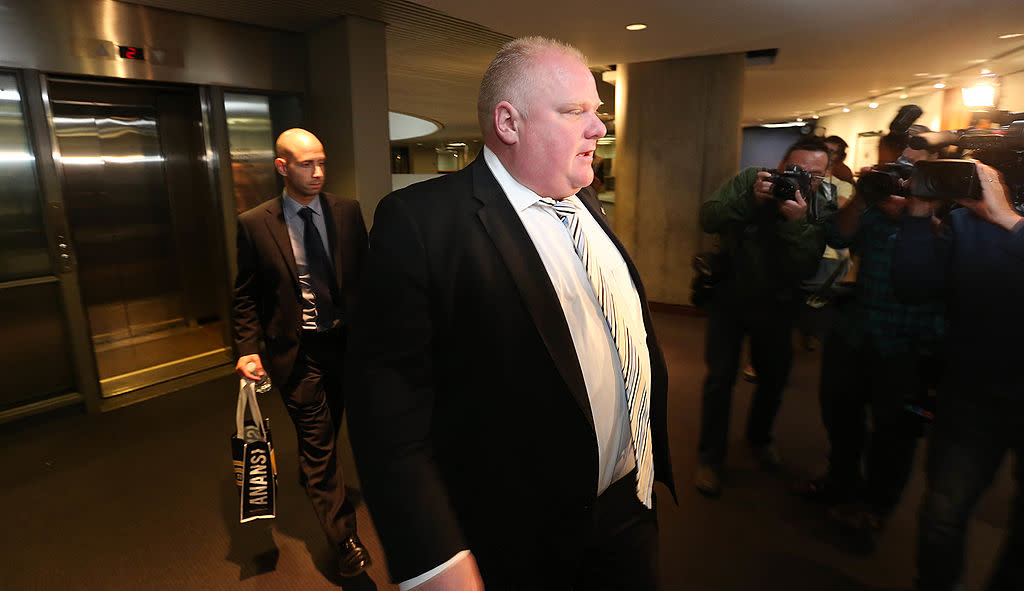Toronto may soon get a street named after Rob Ford

If you think that Rob Ford Road has a nice ring to it, then you can vote on it. The City of Toronto is letting locals pick the names of three new streets in Etobicoke, and the controversial late mayor made the cut.
The Six Points Interchange—located where Dundas and Bloor Streets and Kipling Avenue intersect—is being reconstructed into a mixed-use area for transit, drivers and pedestrians. The site, northeast of Kipling subway station, will also undergo some name changes with help from an online survey.
“This is the first time the city has invited the public to submit names for new streets being created,” said Susan Pape, from the Major Capital Infrastructure Coordination Office.
The survey includes Indigenous names, like Biindagen, an Objibwe word meaning “enter” or “welcome,” and Wadoopikang, a Mississauga First Nation word for “place where the alders grow.” The latter is where Etobicoke got its name. Another contender is Adobigok, the Mississauga word for Etobicoke Creek and the surrounding area. (It is described as another way of saying “where the alders grow.”)
But as Canadians were quick to point out on Twitter, the most contentious name was former politician Rob Ford, who died in 2016. The survey describes his roles as an Etobicoke North councillor and Toronto’s mayor from 2010 to 2014. However, it leaves out his public battle with drugs and alcohol, racial slurs caught on camera, as well as his appearance in a video that made headlines, which showed him allegedly smoking from a crack pipe.
Etobicoke Centre’s Councillor Stephen Holyday told the Toronto Star that he would not reveal whether or not he supported naming a street after Ford, but wanted to consult the family to ensure that’s “what their aspirations are.”
Ford’s inclusion in the survey caused a major stir on social media and overshadowed other prominent figures listed, like Dr. Judith Pilowsky. She was a clinical psychologist who helped underrepresented and abused Etobicoke residents. Pilowsky also fought for women’s rights and advocated for mental health.
Darwyn Cooke, another shortlisted name, was known for his illustrations in DC Comics, like Batman, Superman and Green Lantern. He grew up in the Six Points area and became an award-winning comic and graphic artist.
Jerry Horwarth, known as the voice of the Toronto Blue Jays for almost four decades, was also selected. He was a long-time Etobicoke resident who made his mark by refusing to use terms that were offensive to the Indigenous community.
The names were submitted by residents last year. They were then reviewed by a panel of city officials and ten of them were shortlisted.
According to Pape, each name was scored on a scale from 0 to 5, based on having a strong positive image and good will, as well as having Indigenous, historical, cultural or social significance, or demonstrating contributions to Etobicoke, Toronto, Ontario or Canada.
The survey ends on September 2 and the panel will provide the the top three names to the Etobicoke York Community Council. The council will make the final decision—but you can still have your say by voting online now.

